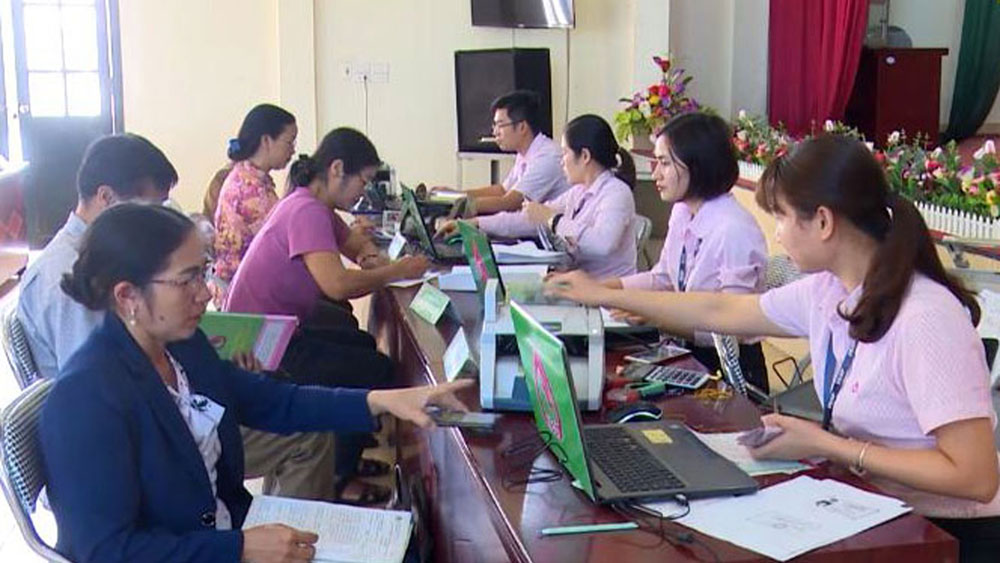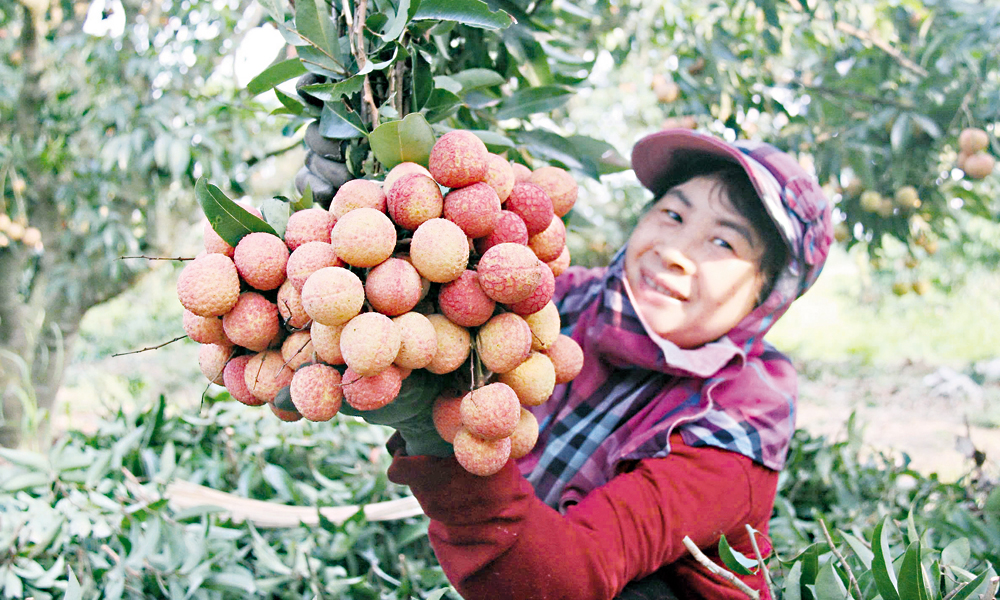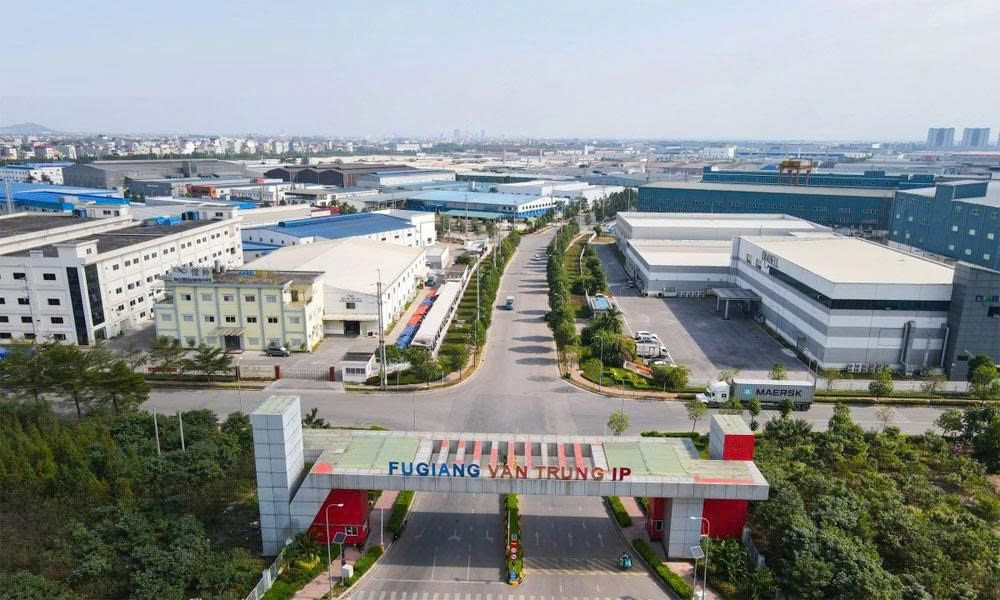Bac Giang boosts disbursement, promotes efficiency of preferential loans
Overcoming difficulties with policy loans
The family of Vu Dinh Minh (born in 1969) in Dong Khanh village, Ngoc Van commune, Tan Yen district has been poor for many years. Although his wife and he had tried many jobs, this family of 6 people could not become better. In 2016, he was advised by the communal peasants’ association to borrow capital from NEF.
 |
|
The employee of the Bank for Social Policies of Hiep Hoa district carries out transaction in lending preferential loans from the National Employment Fund in Doan Bai commune. |
With a loan of 50 million VND (2,157 USD) at interest rate of 0.55% per month (applied for poor households only), he talked to his wife about buying a couple of cows. Currently, his family has 10 cows, 6 horses and more than 10,000 commodity ducks earning an annual profit of 150 million VND (6,472 USD).
Continuing his family’s woodwork, Pham Van Toan (born in 1985) in Ha village, Duc Giang commne, Yen Dung district is the owner of a civil furniture production and trading facility creating jobs for 10 local labourers. Toan started his business in 2010 with 100 million VND (4,314 USD) of trust loan from NEF through the youth union.
In 2015, thanks to 300 million VND (12,944 USD) of loan from this fund, he invested more machines to diversify their product designs. As a result, his facility earns an annual revenue of some 2 billion VND (86,300 USD) since 2018 with the typical products as bed, wardrobe, kitchen counter, doors and stairs which are trusted by customers from Bac Giang and other provinces.
Closely controlling for loan efficiency
NEF has been implemented since 1992 aimed at generating jobs for labourers with the preferential credit loans for small and households businesses. Since 2016, this fund has operated under the Vietnam Labour Law and Governmental Decree No 61/2015/ND-CP dated 9 July 2015.
Based on the Central’s directives, the provincial Department of Labour, Invalids and Social Affairs has proactively popularized the loan policies to the people while collaborating in pouring the loans to needy households through the banks for social policies.
Particularly, the Decree No 74/2019/ND-CP taking effect from November 2019 replacing the Decree No 61 regulates loan supplementation, increase in loan limit, and loan terms, enhancing loan accessibility and efficiency of local people.
According to Ngo Gia Quat, Director of the provincial Bank for Social Policies, apart from the positive results from the National Employment Fund, this programme faces the biggest difficulty of its low loan balance, taking only 5.6 percent of the total loan balances of the provincial Bank for Social Policies. Hence, this Fund is evaluated to meet only 50 percent of the employment needs of the individuals and production facilities.
In order for loan efficiency in the context of limited financial resources, Quat said the most important solution is to properly control the loan balances through effective implementation of loan approval, disbursement, use of capital resources as well as boosting recovery of loans and tackling risks.
It is necessary to regularly supervise the use of loans, boost monthly interest collection and mobilize periodical debt payment after disbursement. Particularly, the Bank should collaborate with the communal governments to send experts in agriculture encouragement to guide caring techniques and disease prevention for seedlings and breeds to assist development of the borrowers’ production models.
So as to improve capacity to meet the demands for loans of the production facilities and household businesses, the Government is suggested supplementing annual financial resources to the National Employment Fund.
Tuong Vi
 Bắc Ninh
Bắc Ninh













Reader's comments (0)